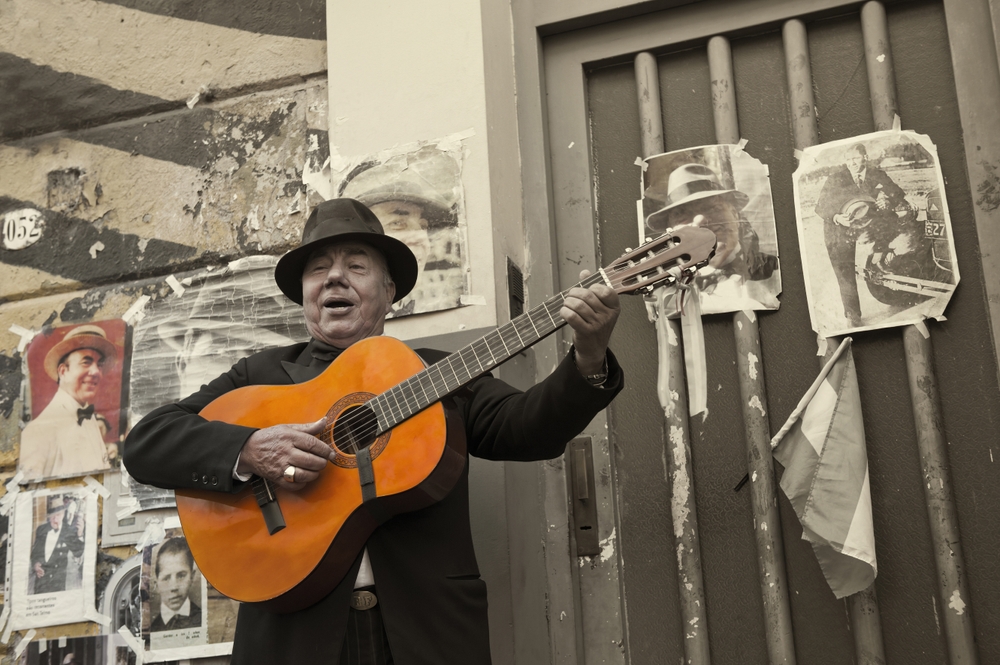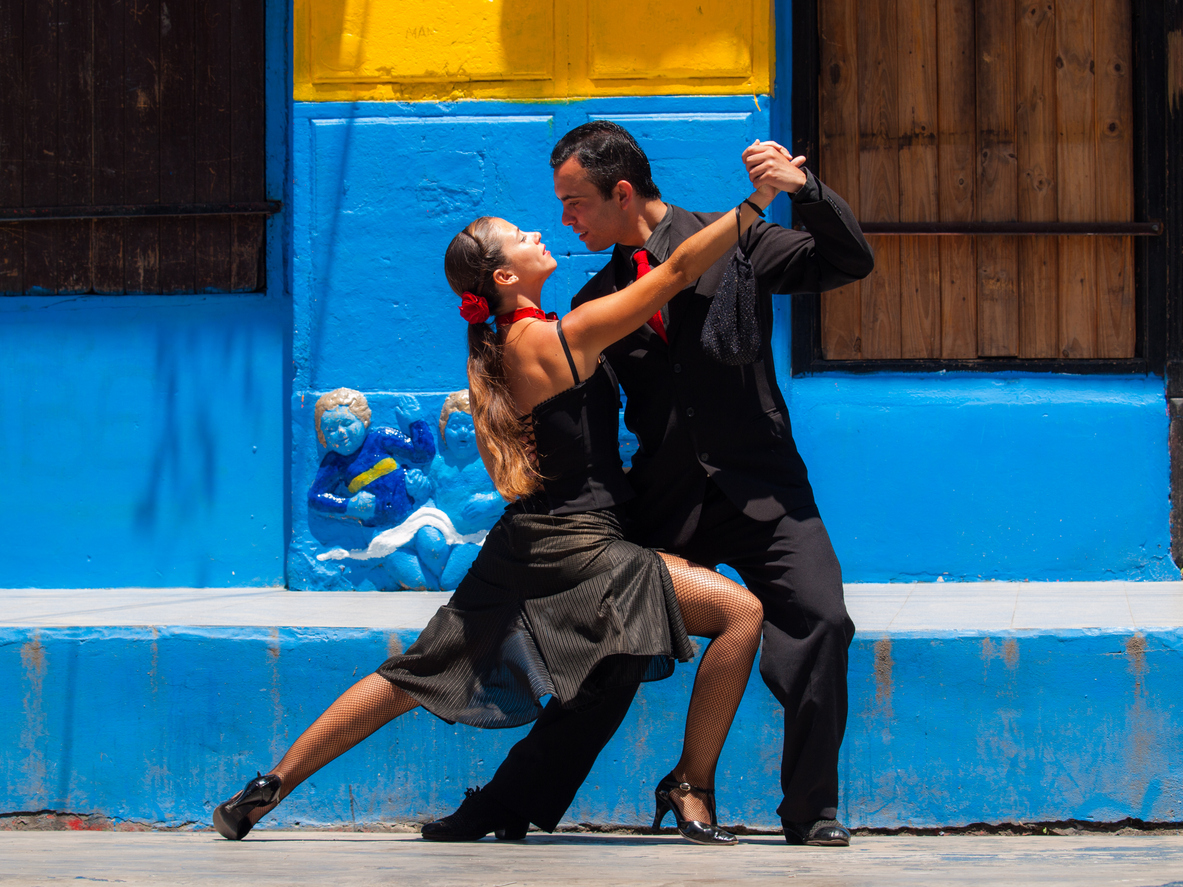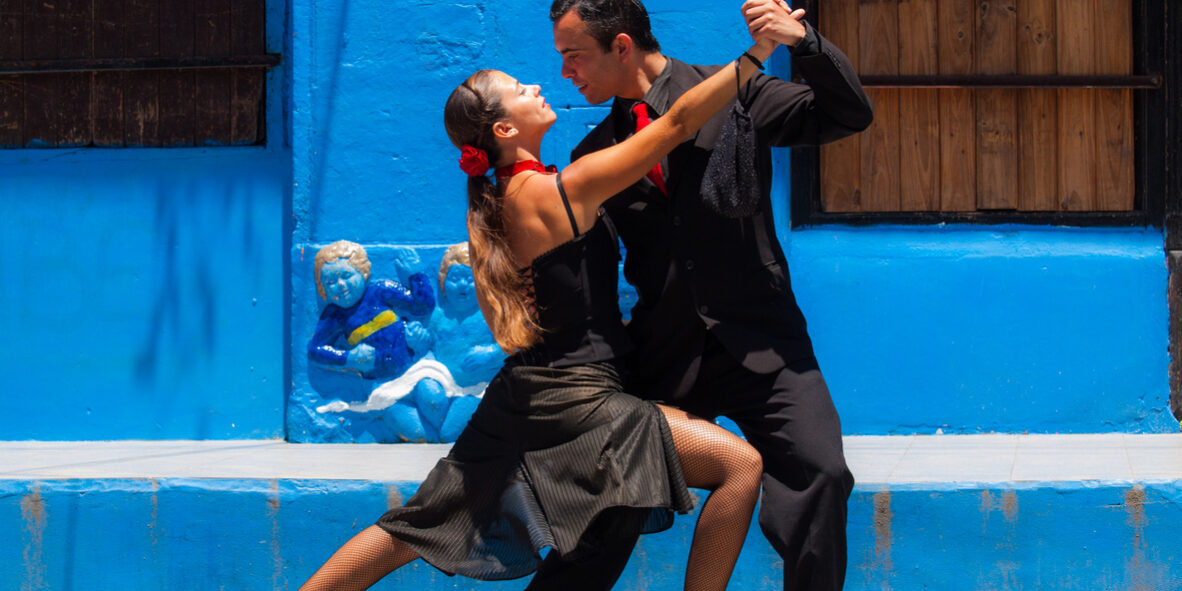The music of Argentina
With songs characterized by passion, movement, tradition, and innovation, Argentina’s contributions to modern music are as diverse as they are profound. In this article, we’ll look at the history of Argentine music, from the sultry rhythms of tango to the defining legacy of rock nacional.
Tango
Tango is a music that originated in Argentina and neighbouring Uruguay during the 19th century.

It is traditionally played on a solo guitar, guitar duo, or an ensemble, with other instruments including bandoneón, violin, and piano.
Borrowing from European immigrant music, African rhythms, and local styles, tango music is rooted in the diverse cultural influences that make Argentine culture unique, and somewhat indefinable to outsiders.
At its core, tango music is about expression, steeped in Argentine storytelling and poetic tradition, with lyrics delving into love, heartbreak, and the immigrant experience, but it is perhaps best known for the effects that it has on listeners, making people dance, interact, and communicate through their bodies.

Renowned figures like Carlos Gardel brought tango to the global stage, with his hauntingly arresting baritone and famous songs such as Por Una Cabeza.
Tango is best experienced on the streets of Argentina’s cities, but it has also spread beyond its borders, with musicians around the world getting into tango as an art form and a musical style with limitless possibilities.
In the 21st century, there has been a renewal of tango music in Argentina, with many orchestras, music groups, and artists promoting a ‘New Tango’. These include the likes of Orquesta Rascacielos, Altertango and Ciudad Baigón.
Rock Nacional
While tango is often seen as the sound of Argentina’s tradition, rock nacional represents its spirit of rebellion and innovation, with the term used to describe hundreds of rock/pop bands that formed in the late 20th century.
Among them, Gustavo Cerati stands out in the history of Argentine rock. Born in 1959, he was not only a talented musician but also a singer-songwriter and record producer whose influence extended beyond the boundaries of rock. He first gained prominence as the frontman of the band Soda Stereo, a group that helped define the genre of Latin American rock in the 1980s and 90s. Their music, a mix of rock, pop, and new wave, provided some of the most electrifying songs and performances in South America.
Cerati’s solo career further proved his musical prowess. His 1999 album Bocanada was noted for its fusion of rock with electronic elements, while his poetic songwriting showed that Argentine rock wasn’t to be slotted into the reductive ‘Latin American Music’ genre, but was to be considered unique on its own merit.
No conversation on Argentine rock music would be complete without mentioning Charly García, dubbed ‘the father of rock nacional.’ Garcia’s formative music years were during the 1960s and ‘70s, a period marked by cultural upheaval and political repression. As part of the era-defining band Sui Generis, García wrote songs about peace, unity, and camaraderie—at a time when artists like Bob Dylan and the Beatles were doing the same.
However, García’s work bore an added potency and urgency, as he wrote and performed these songs against the authoritarian constraints of a military dictatorship. The turbulence of Argentina’s late-20th-century history has been recorded in history books, but Sui Generis’s songs remind listeners that there was life and vitality during this repressive era.
Similarly, major artists like Luis Alberto Spinetta have also shown the vitality of Argentina. Spinetta blended rock and jazz, and his lyrical abilities earned him acclaim throughout the Spanish-speaking world. Spinetta’s compositions have been praised for a deep understanding of both music and human emotion (he was inspired by Foucault, Rimbaud, and Van Gogh, amongst others), delving into existential themes while maintaining an accessible style.
One of the most influential figures in Argentine rock was Luca Prodan, the enigmatic frontman of the band Sumo. An iconic figure in the Argentine rock scene of the1980s, Prodan was an Italian-Scottish musician whose life was marked by defiance, resilience, and excess. He moved from London to Buenos Aires to recover from an addiction to heroin, but then turned to alcohol to calm his nerves, drinking a bottle of gin a day.
His stage presence and captivating voice underpinned Sumo’s groundbreaking sound, which blended elements of rock, reggae, and post-punk, all while diving headfirst into the social and political issues that Argentina was dealing with.
At the age of 34 he died from liver cirrhosis but his legacy endured. Sumo’s songs continue to resonate and Prodan has become a symbol of artistic defiance and authenticity.







